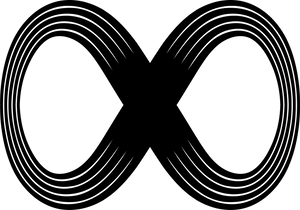As we come to the end of Veganuary, we thought we’d put together some top tips on how to ensure optimal nutrition from your vegan diet. On a vegan diet one does need to be aware of a few things and make an effort to consciously include foods that will cover all your nutritional bases. Protein, of course, is the big one, and then there is Calcium, B12, Omega 3, Zinc, Iodine and Vitamin D. Ensuring one has adequate levels of these essential nutrients is key to staying healthy and vibrant as a vegan.

Eat the rainbow
As always, eating a whole-food, high-fibre, vegetable-based, rainbow coloured diet is the best way to eat vegan. This will ensure you are getting the whole gamut of essential nutrients and minerals. As a vegan, vegetables and fruits should be the mainstay of your diet, and not bread, pasta or rice.
Getting enough protein and calcium
The number one question vegans are asked is “Where do you get your protein?”. Well, there are lots of excellent plant-based sources of protein such as lentils, beans, chickpeas, and tofu. The UK recommendation for daily protein intake is 1g per kilogram of bodyweight . A cup of cooked lentils provides 18g of protein, while also being rich in folate, manganese, iron and zinc. Beans and chickpeas offer 15g of protein per cooked cup. Chickpea hummus is an excellent protein-rich food that can be used on salads, sandwiches and as a snack with crudités.
Beans, peas and lentils are also a good source of calcium. One cup of white beans, for instance, provides 13% of RDI (recommended daily intake). Other calcium rich foods include kale, pakchoi, dried figs, chia seeds, sesame seeds and almonds. A quarter cup of almonds provides 10% of RDI and 2 tbs of tahini provides 13% RDI.
Essential B12
This is another big one for vegans. B12 is extremely important for maintaining healthy red blood cell production, DNA synthesis, nervous system function, and energy metabolism. It also helps prevent anemia. A daily dose of 3 micrograms is sufficient, but the only way for vegans to get enough B12 is to consume foods fortified with the vitamin. Read the labels for B12 fortified foods, such as nutritional yeast, marmite, plant milks, and cereals, to ensure you are getting enough B12. Make a cheesy-tasting sauce with nutritional yeast and cashew or add nutritional yeast to soups for a delicious, savouryflavour.
Get a balance of Omega 3s and 6s
It’s imperative we get the two essential fatty acids, alpha-linolenic acid (ALA) and linoleum acid (LA) from our diet, as our bodies don’t make them. LA is an omega-6 fat, while ALA is an omega-3 fat. These essential fatty acids are necessary for properly functioning immune system, brain, nerves and eyes. Source of LA include pumpkin and sunflower seeds, hemp seeds, and walnuts. Good sources of ALA include ground linseed, chia seeds, hemp seeds and walnuts. One tablespoon of chia seeds or ground linseed, 2 table spoons of hemp or six walnut halves daily will meet your ALA requirement. We tend to get more LA in our diets naturally, so focus of the ALAs to achieve a good balance. A great way of eating chia seeds is to create a chia seed pudding, which you can enjoy as a superfood breakfast or as an after-supper pudding.
Kniskern, Ma and Johnston, CS (2011) Protein dietary reference intakes may be inadequate for vegetarians if low amounts of animals protein are consumed, Nutrition, 27 (6), 727-730
Top up your iodine
Typically if you’re not eating seafood or dairy, it’s a challenge to get enough iodine. Iodine is important for proper thyroid function. Seaweed is one source of iodine and nori sheets or crisps are an option. One and a half nori sheets (4g) give you the recommended daily intake of 140 micrograms of iodine. You do need to be careful as seaweed can be contaminated. Iodised salt is another source, though limiting salt intake is recommended.
Stay away from Vegan junk food
We understand cravings…and that these do sometimes need to be indulged. But what with all manner of vegan substitute products on the market these days, it’s important to still be reading labels and to understand what is in the food you’re consuming. If you can’t pronounce it don’t buy it. The one thing one has to remember is that a lot of what is labelled as vegan is junk food and it doesn’t matter whether it’s vegan or not, it’s still junk food and not health-promoting. So on occasion - fine, but not all the time. There are plenty of properly healthy alternatives to deliciously naughty foods such as chocolate mousse. Have you tried chocolate avocado mousse for instance? It is delicious - trust me!


